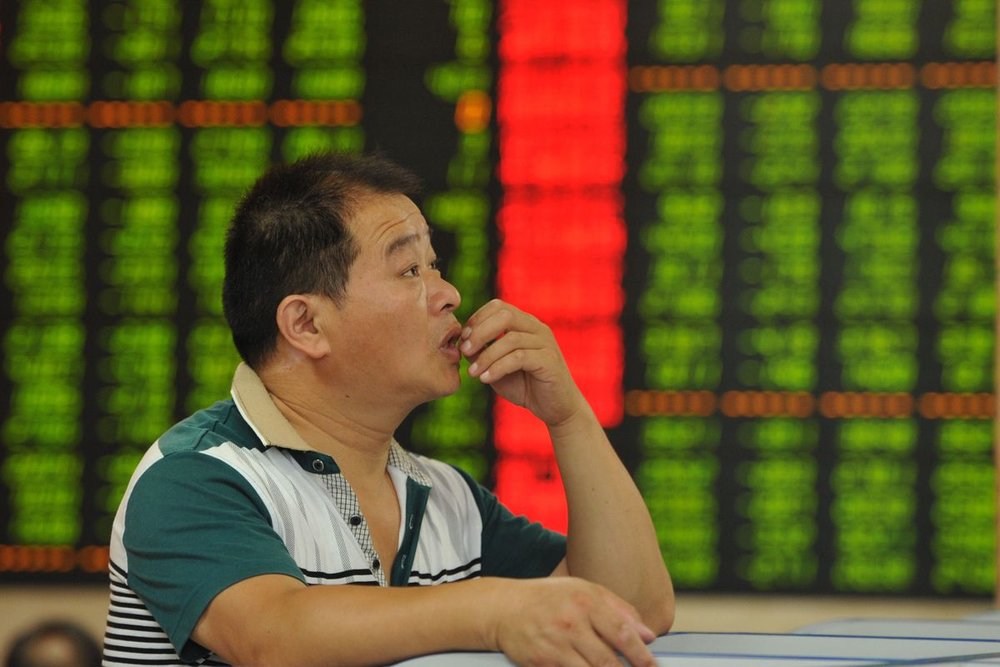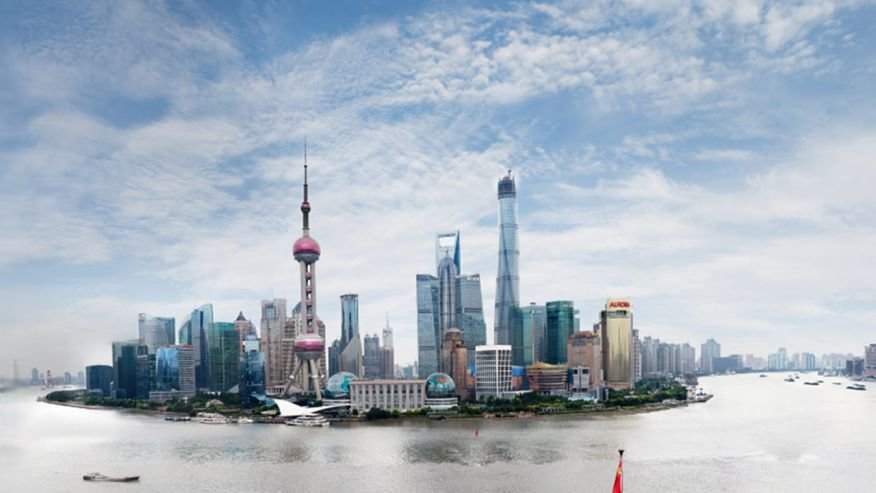The world’s second-largest economy is cooling off at a dangerous rate amidst escalating trade tensions with the United States.
China’s sluggish growth isn’t only detrimental for trading partners in Asia, but also in Europe, U.S. and all other global corporations that operate there – and the gloom has already begun to deepen for the country’s stocks after Shanghai’s benchmark stock index hit its lowest level in the past two years, plunging the market into bear territory.

Chinese stock market suffered a total loss of $1.6 trillion in value last week, bigger than the country’s entire economy
Chinese Stocks Enter Bear Market
Chinese stock market’s plunge into bear territory sent investors scurrying to withdraw investments from equities last week. SSE Composite Index, the country’s benchmark stock index, hit its lowest level in two years and the market suffered a total loss of $1.6 trillion in value – much bigger than the country’s entire economy. SSE index fell by 0.5% on Tuesday, closing 20% less than its most recent high in January.
Growing concerns over slow economic growth and a looming trade war with the United States is to be blamed for putting pressure on Chinese stock market. The trade conflict has further intensified following reports that the U.S. administration will enforce new restrictions on China from investing in American firms. With the two biggest global economies going head to head in one of the biggest confrontation in decades, investors are sitting tight, unsure whether China’s stock market would be able to bear the brunt if an official trade war erupts.
Head researcher at Kingston Securities in Hong Kong, Dickie Wong agrees that the recent bear market is the culmination of China’s shrinking GDP growth and fears of a potential global trade war. Wong says that Shanghai Composite, which was the worst performer this year of all global stock indexes, will crash even further in the upcoming weeks, depending on the global economic climate.
Yuan Weakens
Following the U.S. President Donald Trump’s threat to impose even more export tariffs on China, the Chinese stock market fell by 4 per cent in a single day. Furthermore, the country’s economy has started showing signs of slowdown after a strong growth of 6.9% last year.
Economists began voicing their skepticism at the beginning of the year that the momentum in GDP growth wouldn’t be able to hold for long considering the country’s deteriorating trade relationship with the United States.
Data from official economic reports shows that areas like consumer spending, company investments and export growth have all suffered a sharp decline in comparison to last year. The Chinese stock market faced a similar decline in late 2015 and early 2016 over fears of economic slowdown, although China’s trade relationship with the United States was much stronger then than it is now.

Chinese government will free up $100 billion for lending on July 5 to promote economic activity in the country
After the government’s efforts to strengthen its currency against the dollar, the Chinese Yuan has fallen by 2.4 per cent in value over the past few weeks amidst the rising trade conflict. The weakening currency has further discouraged the stock market driving it into bear territory.
Tai Hui, JPMorgan’s chief market strategist in Asia says that weak Yuan could be bad news for Chinese companies that have issued heavy debts in dollars and are not subject to higher interest payments. The U.S. dollar, on the other hand, has been gaining ground against Asian currencies, including the Yuan, due to the recent hikes in interest rates by the Federal Reserve.
$100 Billion Injection
To invigorate its sluggish economy, China’s People’s Bank is freeing up more cash for lending by cutting the minimum amount of deposit banks must have in their reserves. The government is planning to inject at least $100 billion into its economy and lend more cash to companies in order to generate more economic activity. The deposit cut will be enforced on July 5 – just a day before China and United States are planning to announce export tariffs worth billions of dollars on each other.
Investment Analyst at Nomura speculates that China’s economy could become even worse in the coming months before getting better. Experts are predicting more monetary stimulus measures by the Central Bank in the future to avert the crisis. But loosening grip over it monetary policy could make matter worse for China, says economist Wei Yao. He believes that tackling foreign debt should be on the top of the country’s priority list if it wants to find a long-term solution to its economic problems.










